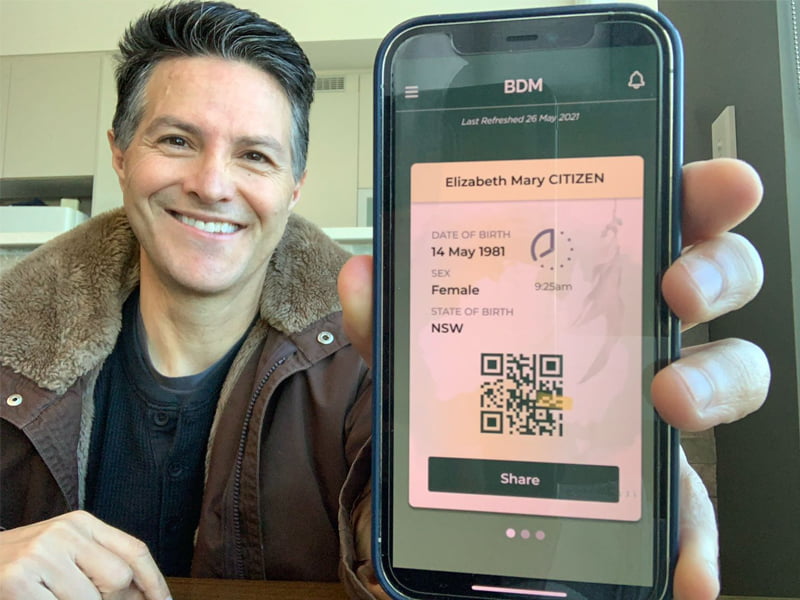A digital birth certificate will not become universally available in NSW this year as initially planned, with the state government now aiming to pilot the credential with defined cohorts in December.
The NSW Registry of Births, Deaths and Marriages (BDM) has been working to develop the digital birth certificate at the direction of digital government minister Victor Dominello for the past two years.
The opt-in credential is being built on behalf of other registries across Australia as a test case for a nationally recognised system of verifiable credentials between states and territories.

Designed to make identity proofing requirements easier and more secure for those born in Australia, the digital birth certificate will complement current physical versions of the certificate.
It is expected to limit how much information is shared with an organisation depending on their identity requirements, avoiding the current situation where a file copy of a birth certificate is made.
Having developed a prototype in 2021, NSW BDM tapped US tech consultancy Thoughtworks to take over the build in May, with the launch of the credential expected in late 2022.
On Tuesday, Minister Dominello said he was shown a functional digital birth certificate last week and that Service NSW is planning to test integration of the credential into its app by October.
But a closed pilot of the credential is now not expected until November, followed by a “pilot with certain cohorts” in mid-December. The length of the various pilots is not clear.
Minister Dominello said the government would also use the extended timeframe to address issues with the current process of replacing birth certificates, which can take up to a month to receive from BDM.
“By Christmas, we’ll have made some improvements, however, the reality is an optimised customer experience using digital ID will not be available until next year,” he wrote on Twitter.
Digital identity is one of several projects of importance for Minister Dominello as he prepares to retire from politics at the NSW election in March next year.
“A digital ID provides far greater privacy and security protections in a digital world,” he said just before announcing his retirement last month.
“Not only does it mean photocopies of your private information aren’t stored away in filing cabinets or the cloud, but also allows you to decide what information you do share.
“It is also the gateway for seamless service delivery between agencies and organisations alike, which must be the goal of modern government service delivery.”
Do you know more? Contact James Riley via Email.

